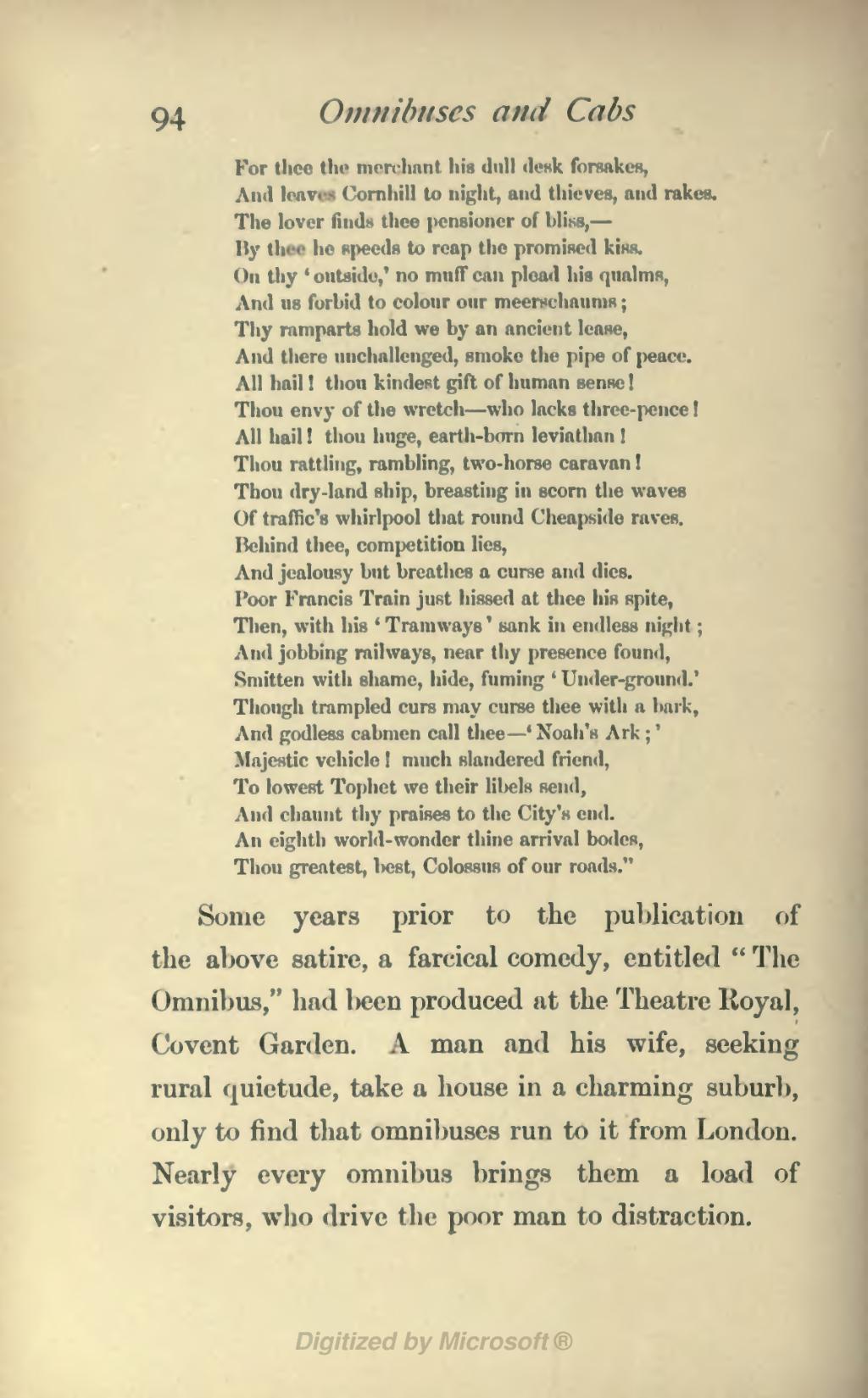For thee the merchant his dull desk forsakes,
And leaves Cornhill to night, and thieves, and rakes.
The lover finds thee pensioner of bliss,—
By thee he speeds to reap the promised kiss.
On thy 'outside,' no muff can plead his qualms,
And us forbid to colour our meerschaums;
Thy rampants hold we by an ancient lease,
And there unchallenged, smoke the pipe of peace.
All hail! thou kindest gift of human sense!
Thou envy of the wretch—who lacks three-pence!
All hail! thou huge, earth-born leviathan!
Thou rattling, rambling, two-horse caravan!
Thou dry-land ship, breasting in scorn the waves
Of traffic's whirlpool that round Cheapside raves
Behind thee, competition lies,
And jealousy but breathes a curse and dies.
Poor Francis Train just hissed at thee his spite,
Then, with his 'Tramways' sank in endless night;
And jobbing railways, near thy presence found,
Smitten with shame, hide, fuming 'Under-ground.'
Though trampled curs may curse thee with a bark,
And godless cabmen call thee—'Noah's Ark;'
Majestic vehicle! much slandered friend,
To lowest Tophet we their libels send,
And chaunt thy praises to the City's end.
An eighth world-wonder thine arrival bodes,
Thou greatest, best, Colossus of our roads."
Some years prior to the publication of the above satire, a farcical comedy, entitled "The Omnibus," had been produced at the Theatre Royal, Covent Garden. A man and his wife, seeking rural quietude, take a house in a charming suburb, only to find that omnibuses run to it from London. Nearly every omnibus brings them a load of visitors, who drive the poor man to distraction.
